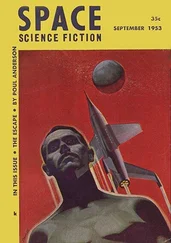Philip Dick - THE MAN WHO JAPED
Здесь есть возможность читать онлайн «Philip Dick - THE MAN WHO JAPED» весь текст электронной книги совершенно бесплатно (целиком полную версию без сокращений). В некоторых случаях можно слушать аудио, скачать через торрент в формате fb2 и присутствует краткое содержание. Жанр: Фантастика и фэнтези, на английском языке. Описание произведения, (предисловие) а так же отзывы посетителей доступны на портале библиотеки ЛибКат.
- Название:THE MAN WHO JAPED
- Автор:
- Жанр:
- Год:неизвестен
- ISBN:нет данных
- Рейтинг книги:3 / 5. Голосов: 1
-
Избранное:Добавить в избранное
- Отзывы:
-
Ваша оценка:
- 60
- 1
- 2
- 3
- 4
- 5
THE MAN WHO JAPED: краткое содержание, описание и аннотация
Предлагаем к чтению аннотацию, описание, краткое содержание или предисловие (зависит от того, что написал сам автор книги «THE MAN WHO JAPED»). Если вы не нашли необходимую информацию о книге — напишите в комментариях, мы постараемся отыскать её.
THE MAN WHO JAPED — читать онлайн бесплатно полную книгу (весь текст) целиком
Ниже представлен текст книги, разбитый по страницам. Система сохранения места последней прочитанной страницы, позволяет с удобством читать онлайн бесплатно книгу «THE MAN WHO JAPED», без необходимости каждый раз заново искать на чём Вы остановились. Поставьте закладку, и сможете в любой момент перейти на страницу, на которой закончили чтение.
Интервал:
Закладка:
From a suitcase Gates produced two fifths of Scotch whiskey. "To celebrate," he said, opening both. "Somebody get glasses. Or we can pass them around."
The phone rang, and Allen answered it.
"Hello, Allen," Myron Mavis' creaky voice came. "How're things going?"
"Absolutely perfect," Allen answered. "Want to stop by and join us?"
"Sorry. Can't. I'm bogged down in leaving. All my stuff to get packed for the trip to Sirius."
"Try to catch the projection tonight," Allen said. "It starts in a couple of minutes."
"How's Janet?"
"Seems to be feeling pretty fair. She's glad it's out in the open." He added,"[sic] She's watching at the apartment."
"Say hello to her," Mavis said. "And good luck on your lunacy."
"Thanks," Allen said. He said goodbye and hung up.
"Time," Sugermann said. Gates turned on the big TV receiver and they gathered around it. "Here we go."
"Here we go," Allen agreed.
Mrs. Georgina Birmingham placed her favorite chair before her television set and anticipated her favorite program, "The Pageant of Time." She was tired from the hectic activities of the day, but a deep spiritual residuum reminded her that work and sacrifice were their own reward.
On the screen was an inter-program announcement. A large decayed tooth was shown, grimacing with pain. Next to it a sparkling healthy tooth jeered sanctimoniously. The two teeth engaged in Socratic dialogue, the upshot of which was the rout and defeat of the bad tooth.
Mrs. Birmingham gladly endured the inter-program announcements because they were in a good cause. And the program, "Pageant of Time," was well worth any reasonable effort. She always hurried home early on Monday evening; in ten years she hadn't missed an edition.
A shower of brightly-colored fireworks burst across the screen, and from the speaker issued the rumble of guns. A jagged, slashing line of words cut through the blur of war:
THE PAGEANT OF TIME
Her program had begun. Folding her arms, leaning her head back, Mrs. Birmingham now found herself viewing a table at which sat four dignified gentlemen. A discussion was in progress, and dim words were audible. Over them was superimposed the announcer's voice.
"Pageant of Time. Ladies and gentlemen, at this table sit four men, each a distinguished authority in his field. They had come together to discuss an issue vital to every citizen of the Morec society. In view of the unusual importance of this program there will be no interruptions, and the discussion, which is already in progress, will proceed without pause until the end of the hour. Our topic for tonight..." Visible words grew on the screen.
ACTIVE ASSIMILATION IN THE WORLD TODAY
Mrs. Birmingham was delighted. She had been hearing about active assimilation for some time, and this was her opportunity to learn once and for all what it was. Her lack of information had made her feel out of touch.
"Seated at my right is Doctor Joseph Gleeby, the noted educator, lecturer, writer of numerous books on problems of social values." A lean middle-aged man, smoking a pipe and rubbing his ear, was shown. "To Doctor Gleeby's right is Mr. Harold Priar, art critic, architect, frequent contributor to the Encyclopedia Britannica." A smaller individual was shown, with an intense, serious face. "Seated next to Mr. Priar is Professor Sugermann, whose historical studies rank with those of Gibbon, Schiller, Toynbee. We are very fortunate to have Professor Sugermann with us." The camera moved forth to show Professor Sugermann's heavy, solemn features. "And next to Professor Suggermann sits Mr. Thomas L. Gates, lawyer, civic leader, consultant to the Committee for a number of years."
Now the moderator appeared, and Mrs. Birmingham found herself facing Allen Purcell.
"And I," Mr., Purcell said, "am Allen Purcell, Director of Telemedia." He seated himself at the end of the table, by the water pitcher. "Shall we begin, gentlemen, with a few words about the etymology of active assimilation? Just how did Major Streiter develop the policy that was to prove so effective in his dealings with opposition groups?"
"Well, Mr. Purcell," Professor Sugermann began, coughing importantly and fingering his chin, "the Major had many opportunities to see first-hand the ravages of war on principally agricultural and food-producing areas, such as the livestock regions of the West, the wheat fields of Kansas, the dairy industry of New England. These were all but wiped out, and naturally, as we all know, there was intensive deprivation if not actual starvation. This contributed to a decline of over-all productivity affecting industrial reconstruction. And during this period, of course, com- munications broke down; areas were cut off; anarchy was common."
"In that connection," Doctor Gleeby put in, "many of the problems of decline of moral standards inherent in the Age of Waste were vastly intensified by this collapse of what little government there was."
"Yes indeed," Professor Sugermann agreed. "So in following this historic pattern, Major Streiter saw the need of finding new sources of food... and the soil, as we know, was excessively impregnated with toxic metals, poisons, ash. Most domestic herds had died off." He gazed upward. "I believe by 1975 there were less than three hundred head of cattle in North America."
"That sounds right," Mr. Purcell said agreeably.
"So," Professor Sugermann continued, "Moral Reclaimers as they operated in the field in the form of teams—" He gestured. "More or less autonomous units; we're familiar with the technique... . Encountered a virtually insoluble problem, that of feeding and caring for the numbers of persons coming across from hostile groups operating in the same area. In that connection I might add that Major Streiter seems to have foreseen long in advance the continual decline of animal husbandry that was to occur during the next decade. He took steps to anticipate the decline, and of course historians have made a big point of the aptness of those steps."
Professor Sugermann sighed, contemplated his clasped hands, then went on.
"To fully grasp their situation, we must picture ourselves as living essentially without government, in a world of brute force. What concepts of morality existed were found only within the Reclaimers' units; outside of that it was dog-eat-dog, animal against animal. A kind of jungle struggle for survival, with no holds barred."
The table and five men dissolved; in their place appeared familiar scenes of the first postwar years. Ruins, squalor, barbarians snarling over scraps of meat. Dried pelts hanging from slatternly hovels. Flies. Filth.
"Large numbers of opposition groups," Professor Sugermann continued, "were falling into our hands daily, thus complicating an already catastrophic problem of creating a stable diet in the devastated areas. Morec was on the ascendancy, but nobody was so idealistic as to believe the problem of creating a unified cultural milieu could be solved overnight. And the really sobering factor, evidently recognized early by the Major, was the so-called ‘impossible' faction: those groups who could never be won over, and who were doing the most harm. Since Reclaimers were principally operating against those ‘impossibles,' it was only natural that in the plan worked out by Major Streiter these ‘impossibles' would be the most natural sources for assimilation. Further—"
"I must disagree," Mr. Gates interrupted, "if I may, Professor Sugermann. Isn't it true that active assimilation had already occurred, prior to the Morec Plan? The Major was fundamentally an empiricist; he saw assimilation occurring spontaneously and he was quick to take advantage of it."
"I'm afraid that doesn't do justice to the Major's planning ability," Mr. Priar spoke up. "That is, you're making it sound as if active assimilation just—happened. But we know active assimilation was basic, preceding the autofac system which eventually supplanted it."
Читать дальшеИнтервал:
Закладка:
Похожие книги на «THE MAN WHO JAPED»
Представляем Вашему вниманию похожие книги на «THE MAN WHO JAPED» списком для выбора. Мы отобрали схожую по названию и смыслу литературу в надежде предоставить читателям больше вариантов отыскать новые, интересные, ещё непрочитанные произведения.
Обсуждение, отзывы о книге «THE MAN WHO JAPED» и просто собственные мнения читателей. Оставьте ваши комментарии, напишите, что Вы думаете о произведении, его смысле или главных героях. Укажите что конкретно понравилось, а что нет, и почему Вы так считаете.









